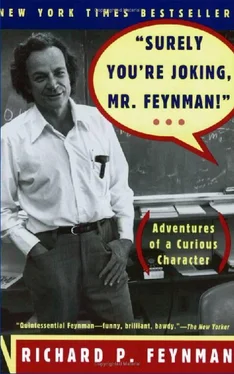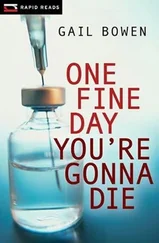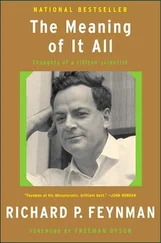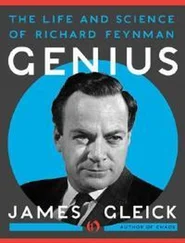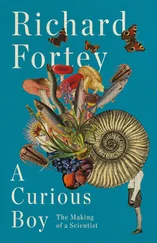I remembered the couple of times I had visited Caltech, at the invitation of Professor Bacher, who had previously been at Cornell. He was very smart when I visited. He knew me inside out, so he said, “Feynman, I have this extra car, which I’m gonna lend you. Now here’s how you go to Hollywood and the Sunset Strip. Enjoy yourself.”
So I drove his car every night down to the Sunset Strip—to the nightclubs and the bars and the action. It was the kind of stuff I liked from Las Vegas—pretty girls, big operators, and so on. So Bacher knew how to get me interested in Caltech.
You know the story about the donkey who is standing exactly in the middle of two piles of hay, and doesn’t go to either one, because it’s balanced? Well, that’s nothing. Cornell and Caltech started making me offers, and as soon as I would move, figuring that Caltech was really better, they would up their offer at Cornell; and when I thought I’d stay at Cornell, they’d up something at Caltech. So you can imagine this donkey between the two piles of hay, with the extra complication that as soon as he moves toward one, the other one gets higher. That makes it very difficult!
The argument that finally convinced me was my sabbatical leave. I wanted to go to Brazil again, this time for ten months, and I had just earned my sabbatical leave from Cornell. I didn’t want to lose that, so now that I had invented a reason to come to a decision, I wrote Bacher and told him what I had decided.
Caltech wrote back: “We’ll hire you immediately, and we’ll give you your first year as a sabbatical year.” That’s the way they were acting: no matter what I decided to do, they’d screw it up. So my first year at Caltech was really spent in Brazil. I came to Caltech to teach on my second year. That’s how it happened.
Now that I have been at Caltech since 1951, I’ve been very happy here. It’s exactly the thing for a one-sided guy like me. There are all these people who are close to the top, who are very interested in what they are doing, and who I can talk to. So I’ve been very comfortable.
But one day, when I hadn’t been at Caltech very long, we had a bad attack of smog. It was worse then than it is now—at least your eyes smarted much more. I was standing on a corner, and my eyes were watering, and I thought to myself, “This is crazy! This is absolutely INSANE! It was all right back at Cornell. I’m getting out of here.”
So I called up Cornell, and asked them if they thought it was possible for me to come back. They said, “Sure! We’ll set it up and call you back tomorrow.”
The next day, I had the greatest luck in making a decision. God must have set it up to help me decide. I was walking to my office, and a guy came running up to me and said, “Hey, Feynman! Did you hear what happened? Baade found that there are two different populations of stars! All the measurements we had been making of the distances to the galaxies had been based on Cephid variables of one type, but there’s another type, so the universe is twice, or three, or even four times as old as we thought!”
I knew the problem. In those days, the earth appeared to be older than the universe. The earth was four and a half billion, and the universe was only a couple, or three billion years old. It was a great puzzle. And this discovery resolved all that: The universe was now demonstrably older than was previously thought. And I got this information right away—the guy came running up to me to tell me all this.
I didn’t even make it across the campus to get to my office, when another guy came up—Matt Meselson, a biologist who had minored in physics. (I had been on his committee for his Ph.D.) He had built the first of what they call a density gradient centrifuge—it could measure the density of molecules. He said, “Look at the results of the experiment I’ve been doing!”
He had proved that when a bacterium makes a new one, there’s a whole molecule, intact, which is passed from one bacterium to another—a molecule we now know as DNA. You see, we always think of everything dividing, dividing. So we think everything in the bacterium divides and gives half of it to the new bacterium. But that’s impossible: Somewhere, the smallest molecule that contains genetic information can’t divide in half; it has to make a copy of itself, and send one copy to the new bacterium, and keep one copy for the old one. And he had proved it in this way: He first grew the bacteria in heavy nitrogen, and later grew them all in ordinary nitrogen. As he went along, he weighed the molecules in his density gradient centrifuge.
The first generation of new bacteria had all of their chromosome molecules at a weight exactly in between the weight of molecules made with heavy, and molecules made with ordinary, nitrogen—a result that could occur if everything divided, including the chromosome molecules.
But in succeeding generations, when one might expect that the weight of the chromosome molecules would be one-fourth, one-eighth, and one-sixteenth of the difference between the heavy and ordinary molecules, the weights of the molecules fell into only two groups. One group was the same weight as the first new generation (halfway between the heavier and the lighter molecules), and the other group was lighter—the weight of molecules made in ordinary nitrogen. The percentage of heavier molecules was cut in half in each succeeding generation, but not their weights. That was tremendously exciting, and very important—it was a fundamental discovery. And I realized, as I finally got to my office, that this is where I’ve got to be. Where people from all different fields of science would tell me stuff, and it was all exciting. It was exactly what I wanted, really.
So when Cornell called a little later, and said they were setting everything up, and it was nearly ready, I said, “I’m sorry, I’ve changed my mind again.” But I decided then never to decide again. Nothing—absolutely nothing—would ever change my mind again.
When you’re young, you have all these things to worry about—should you go there, what about your mother. And you worry, and try to decide, but then something else comes up. It’s much easier to just plain decide. Never mind—nothing is going to change your mind. I did that once when I was a student at MIT. I got sick and tired of having to decide what kind of dessert I was going to have at the restaurant, so I decided it would always be chocolate ice cream, and never worried about it again—I had the solution to that problem. Anyway, I decided it would always be Caltech.
One time someone tried to change my mind about Caltech. Fermi had just died a short time before, and the faculty at Chicago were looking for someone to take his place. Two people from Chicago came out and asked to visit me at my home—I didn’t know what it was about. They began telling me all the good reasons why I ought to go to Chicago: I could do this, I could do that, they had lots of great people there, I had the opportunity to do all kinds of wonderful things. I didn’t ask them how much they would pay, and they kept hinting that they would tell me if I asked. Finally, they asked me if I wanted to know the salary. “Oh, no!” I said. “I’ve already decided to stay at Caltech. My wife Mary Lou is in the other room, and if she hears how much the salary is, we’ll get into an argument. Besides, I’ve decided not to decide any more; I’m staying at Caltech for good.” So I didn’t let them tell me the salary they were offering.
About a month later I was at a meeting, and Leona Marshall came over and said, “It’s funny you didn’t accept our offer at Chicago. We were so disappointed, and we couldn’t understand how you could turn down such a terrific offer.”
Читать дальше
